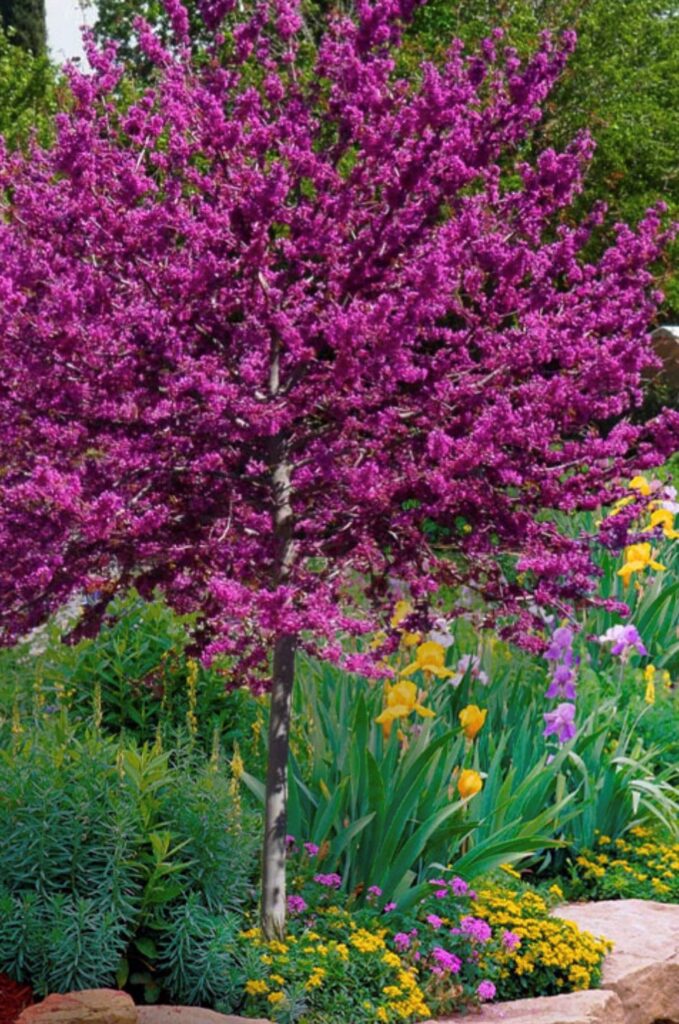Summer officially begins in June. You still have time to plant Summer vegetables. Succession planting, or planting vegetables at different intervals, helps to ensure a season-long crop.
Colorful containers are a welcome statement on porches and patios. I like to use them on the interior of beds to punctuate specific areas. They can elevate the bed with drama or whimsey. Don’t hesitate to make a statement in unexpected areas.
Attracting butterflies and hummingbirds with plants helps distribute the wealth of nectar throughout your yard. These hard working pollinators are a joy to watch. We have plenty of plants that feed both butterflies and hummingbirds. Butterflies transform from caterpillars, so they will also need host plants to feed the caterpillars. Milkweed, passionflower, parsley, goldenrod, switchgrass and oak trees feed hungry caterpillars. We have a wide assortment of trees, shrubs, perennials and annuals that attract hungry butterflies and hummingbirds. Butterfly bush, abelia and rose of Sharon are some favorite shrubs. Crossvine and honeysuckle are pollinator friendly climbing vines. Bee balm, salvia and cardinal flower are some perennials to consider. Cuphea and verbena are two favorite annuals, but most flowering annuals will beckon these pollinators as well. Our staff can help you choose the right plant for your location.
Watering your new plants is essential. Supplemental water is needed for most plants in the absence of at least 2 inches of rain per week. Learn the water requirements of your plants and try to group plants with similar light and watering needs together. Be sure to water your plants well before you plant them and right after planting. After, do a finger test every day or two to determine when to water. Put your finger as deeply as you can into the soil and feel if it is wet or dry. You can also use a moisture meter – probe the soil around the drip line and water when the indicator shows that it is getting dry. You will likely need to provide supplemental water 2-3 times per week during the month of June if we don’t get adequate rainfall.
Our June garden club meeting is on Tuesday, June 10, at 10:00. Come join our discussion on attracting valuable pollinators to the garden.

